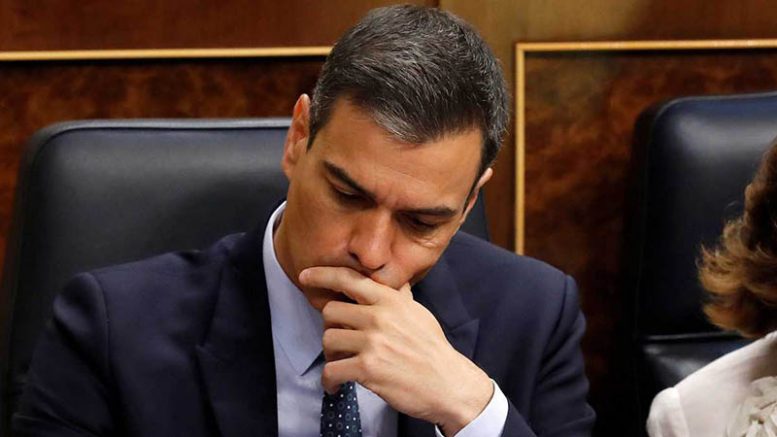J.P. Marín-Arrese | The corruption scandal involving a former minister, second in command of Mr Sánchez in the Socialist party, not only inflicts political damage. It dents Spain’s credibility as a reliable country. The disclosure of the tepid way an unscrupulous gang managed to ransack public funds and indulge in influence peddling portrays a dismal picture of governance enforcement. Even PM Sánchez proved most economical with the truth at Parliament when describing the arrival in Madrid of Ms Delsy Rodríguez, the Venezuelan vice-president barred from entry into the European Union for her criminal record. As the judiciary undertakes its job, fresh inappropriate conduct will undoubtedly emerge. The indictment of close relatives to PM Sánchez adds further disarray.
Whatever the legal outcome, the government will foot a high political bill. The markets usually overlook the risk premium linked to individual venality in public administration unless it grows to a widespread dimension. Yet, the ensuing impact on overall confidence undermines the country’s credit standing when it stems from a loose way of governing, exposing the blatant failure of adequate checks to avoid top-level corruption.
As The Economist recently stressed, PM Sánchez clings to office at a cost to Spain’s democratic standards. You can hardly blame him for trying to retain power. While diplomacy aims at preserving your country for at least the coming century, politics confines itself to surviving until every Friday evening—a task Mr Sánchez fully masters. Yet, the means for achieving that goal seem increasingly controversial.
PM Sánchez doesn’t nurture the ambition to unite most citizens behind a shared endeavour. On the contrary, his policies seem designed to sow discord and anger in roughly half of the population. He even bluntly departs from the last general election party manifesto, bewildering many followers. No wonder he commands dwindling personal consent. Fully aware he came to office as many voters and political parties resorted to him for keeping the extreme right out of power, Mr Sánchez intentionally delivers divisive policies. He banks on it being the best strategy for securing support from the motley set of Parliamentary factions anchoring his government.
As a seasoned tactician, he knows how to switch his problems into embarrassing issues for the Opposition. He is also sapping the far-left parties embedded in his coalition Cabinet, driving them into irrelevance, while delivering promises to the Catalan separatist allies that everyone doubts he might fully keep. His premiership will probably survive the current ordeal, but his dubious legacy will spin into collective costs citizens should not afford to ignore. His only hope is that many voters only host a short-lived memory.





